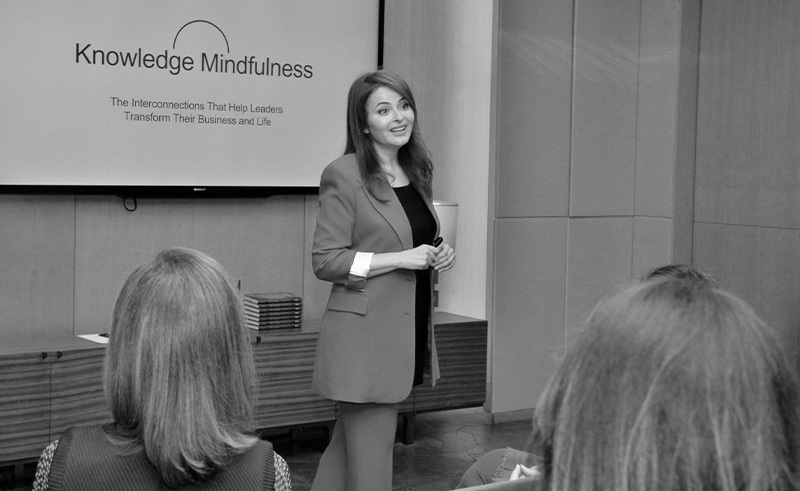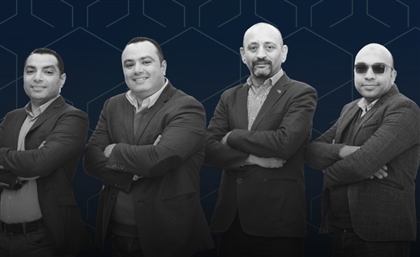Masterclass With Author & Entrepreneur Dr. Laila Marouf
Dr. Laila Marouf, founder and Chief Knowledge Officer of The Knowledge Mindfulness Group, discusses leadership in the age of AI.

StartupScene’s op-ed series ‘Masterclass’ invites some of the region’s most dynamic entrepreneurs and experts to divulge their secrets, dispense their knowledge, and share their experiences with the MENA region’s ever-growing startup ecosystem. Whether they’re written by old guards or trailblazers, these masterclasses have been created to illuminate the path for aspiring entrepreneurs.
This week’s Masterclass contributor is Dr. Laila Marouf, founder and Chief Knowledge Officer of The Knowledge Mindfulness Group, an organisation dedicated to helping leaders succeed using the integrative methodology of Knowledge Mindfulness. Dr. Marouf shares her insights on how startup founders can leverage AI to become better leaders.
 How can startup leaders lead in the age of AI
How can startup leaders lead in the age of AI
It has recently been reported the more “human” you are in leadership, the better the outcomes are for your teams, organisations and yourself. In the era of AI, a proactive human-centric style of leadership is needed more than ever to help employees understand their role and the company’s values.
As AI continues to evolve, we are starting to realise its benefits and limitations. Whilst AI can master many complex skills and tasks, including the ability to mimic emotions, it is unable to genuinely show compassion, care, or good judgement. Human qualities such as wisdom and compassion will start to play an even more prominent role within leadership.
Startup leaders with greater knowledge maturity are more likely to successfully lead their organisation in the age of AI. Being a leader with high knowledge maturity means you embrace the uniquely human qualities more fully by knowing and understanding yourself, as well as others around you, and the interconnection between the two. Leaders today need to understand the benefits of AI and how to best leverage it, as well as its limitations and how to avoid the pitfalls they risk.
With more than 54% of the UAE’s workforce already using AI in their job, according to research by LinkedIn, leaders have a personal responsibility to ensure it is used sensibly by their organisation. They must understand how to interact with Generative AI tools smartly and wisely, while also teaching and educating their employees on AI. It is up to leaders to ensure employees harness AI for constructive rather than destructive impact - and that requires constant renewal and a willingness to unlearn old methods and ideas in preference to adopting new skills more suited to a world of digital transformation. A transition leader with high knowledge maturity will be more successful at.
This is especially important as AI increasingly becomes the chosen tool used for employees to find solutions, with the same research highlighting that employees in the UAE are already thinking of ways AI can help them be more productive. Business leaders must understand the performance and efficiency boosts AI tools can deliver and want their employees to capture it, while also being aware of and mitigating the risks it can bring. The best way for leaders to nurture a culture of higher understanding is to change their mindsets about knowledge, leadership and success, and the interconnections between these factors - which are all critical and connected elements of knowledge mindfulness.
 In the AI era, it is important startup leaders prioritise “knowing themselves” as much as understanding and knowing the “other” to actively foster collaborative sparks and mutual support systems to reach not only the company’s desired objectives and vision, but also their leaders and people’s objectives as well. For startups to succeed, leaders will need to equip their employees to trust their instincts, listen to others, and make smart, responsible decisions when dealing with new technologies such as AI.
In the AI era, it is important startup leaders prioritise “knowing themselves” as much as understanding and knowing the “other” to actively foster collaborative sparks and mutual support systems to reach not only the company’s desired objectives and vision, but also their leaders and people’s objectives as well. For startups to succeed, leaders will need to equip their employees to trust their instincts, listen to others, and make smart, responsible decisions when dealing with new technologies such as AI.
Leaders with high knowledge maturity understand intrinsically they cannot succeed in today’s world without the trusted others and knowledge community around them. Equally, they understand that to perform better, we need to feel better - and that means pausing and disconnecting from the external world to catch our breath, reconnect with our inner world, and make sense of what is happening around us.
Building a strong culture, shared values and a shared vision is vital for startups. As workforce opportunities potentially decrease and shift with time, workplace conflict will increase, and leaders will need to navigate and manage interpersonal issues that may impact their work and hinder reaching their objectives. This emphasises the necessity for knowledge mindful organisations who are better equipped to combat and mitigate such conflict.
Additionally, a leader with high knowledge maturity will understand the importance of diversity in the workforce, not only in skills but also in backgrounds and values. In the age of AI, it is vital to combat any potential AI biases.
As AI becomes ever more entrenched, the core values underpinning leadership must remain human-centric. Leaders will have to know and understand what their employees and organisations are looking for; develop a nurturing company culture; instil confidence and responsibility in employees to be able to use AI wisely; and ensure new technologies are being used effectively with a deep understanding of its pros and cons.
Startup leaders need to model knowledge mindfulness for their teams - and trust the more employees see leaders leveraging the totality of their own knowledge and cultivating human connections with others to leverage wisdom in positive, responsible actions and impacts, the more they too will choose to lean into their own core human values alongside AI.
Trending This Week
-
Feb 23, 2026



























